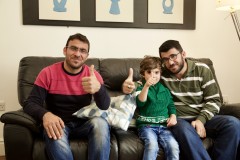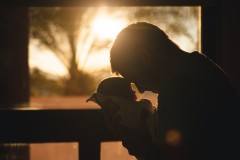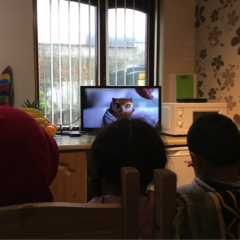 Jodi Picoult once wrote, “Having a family means you’re never alone.” But even in families, loneliness can be a problem. There are lots of reasons why. A new addition to the family, illness or disability and resettlement can all cause feelings of isolation. After all, feeling lonely is not the same as being alone. Here we explore some of the circumstances that can lead to people feeling lonely within their family.
Jodi Picoult once wrote, “Having a family means you’re never alone.” But even in families, loneliness can be a problem. There are lots of reasons why. A new addition to the family, illness or disability and resettlement can all cause feelings of isolation. After all, feeling lonely is not the same as being alone. Here we explore some of the circumstances that can lead to people feeling lonely within their family.
A new child
A new study has found that the majority of new parents feel lonely and isolated, and two thirds feel cut off from friends and family. Being on maternity leave, being short of cash and the restricted freedoms of parenthood all cause parents to feel lonely.
For a woman who is used to being at work or managing a busy social life, maternity leave can feel very isolating. But it’s not just mothers who struggle. Fathers can feel excluded from the strong bond between mother and child. This can make them feel isolated from their partner. And men who are primary caregivers or stay-at-home dads are still in the minority, and can feel isolated from other parents at the nursery.
Illness and disability
In the UK, one child in 20 has a disability, and is cared for by a parent at home. 700,000 children care for an ill or disabled family member. As we saw in August, providing care in this way can be very isolating for parents and children. And both illness and disability can cause people to feel lonely.
One common cause of loneliness that we see through out work is cancer. For those receiving treatment getting out and about can be difficult, and receiving visitors can increase risk of infection. For patients’ families, normal life can be put on hold while treatment plans, side effects, logistics and emotional turmoil take over. Time to just socialise with friends and family can be hard to find.
Domestic Abuse
We work with many shelters protecting women, men and children fleeing domestic abuse. Abuse often involves the abuser deliberately isolating their victim from their family and friends. People in an abusive environment may feel alone even if they see colleagues, family members or friends on a regular basis.
For those who have left abusive relationships, loneliness can continue after their escape. Survivors are often placed in a refuge or accommodation far from their abuser for their protection. But this can leave them far from their family, and they may not be able to tell friends where they are for fear of putting them at risk.
Refugees
We support a large number of refugees who have been brought to the UK through the Syrian Vulnerable Person Resettlement Programme. Many of these are families who have lost their homes, communities and livelihoods through the war in Syria. Often the children of these families find it easier to learn English and make friends as they spend their days at school. Their parents, however, often cannot work until they have mastered English, and with their kids at school all day they may spend hours alone.
How we can help families
At WaveLength, we hear stories like these every day. By providing technology to those who are lonely, we are able to help them feel less isolated and connect to the people around them.
Many people think that you have to be alone to feel lonely. However, this is simply not true. Sometimes being around other people can make us feel lonelier. For example, survivors of abuse or refugees who have moved with their children may feel more isolated as they try to protect their kids from the difficulties of their situation. And when a gift from us helps their children, they in turn feel less alone.
We are honoured to be able to help so many children and parents to feel less lonely through the work that we do. We will be sharing stories, quotes and photos of the impact technology can have on lonely families throughout the rest of the month.

